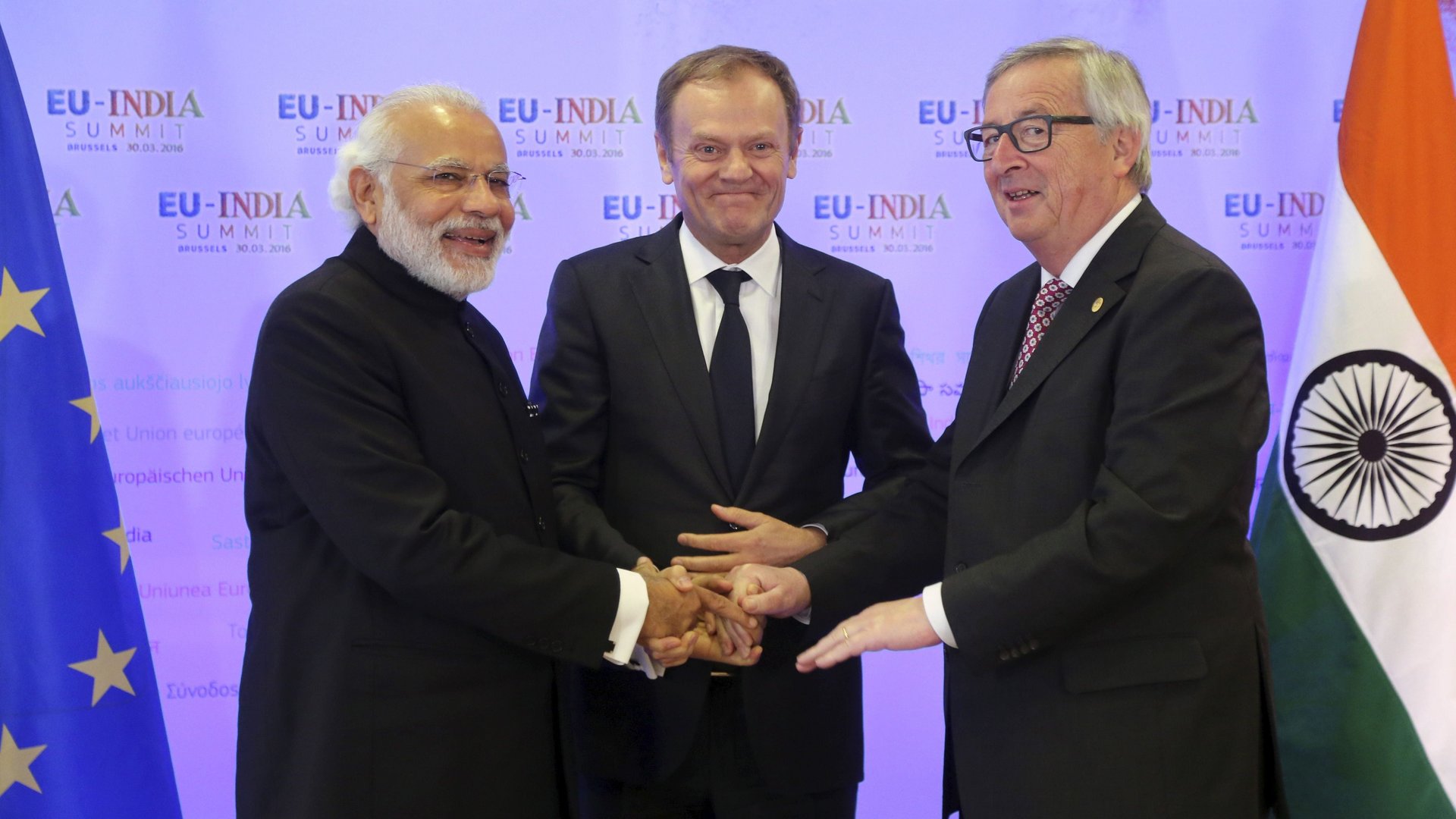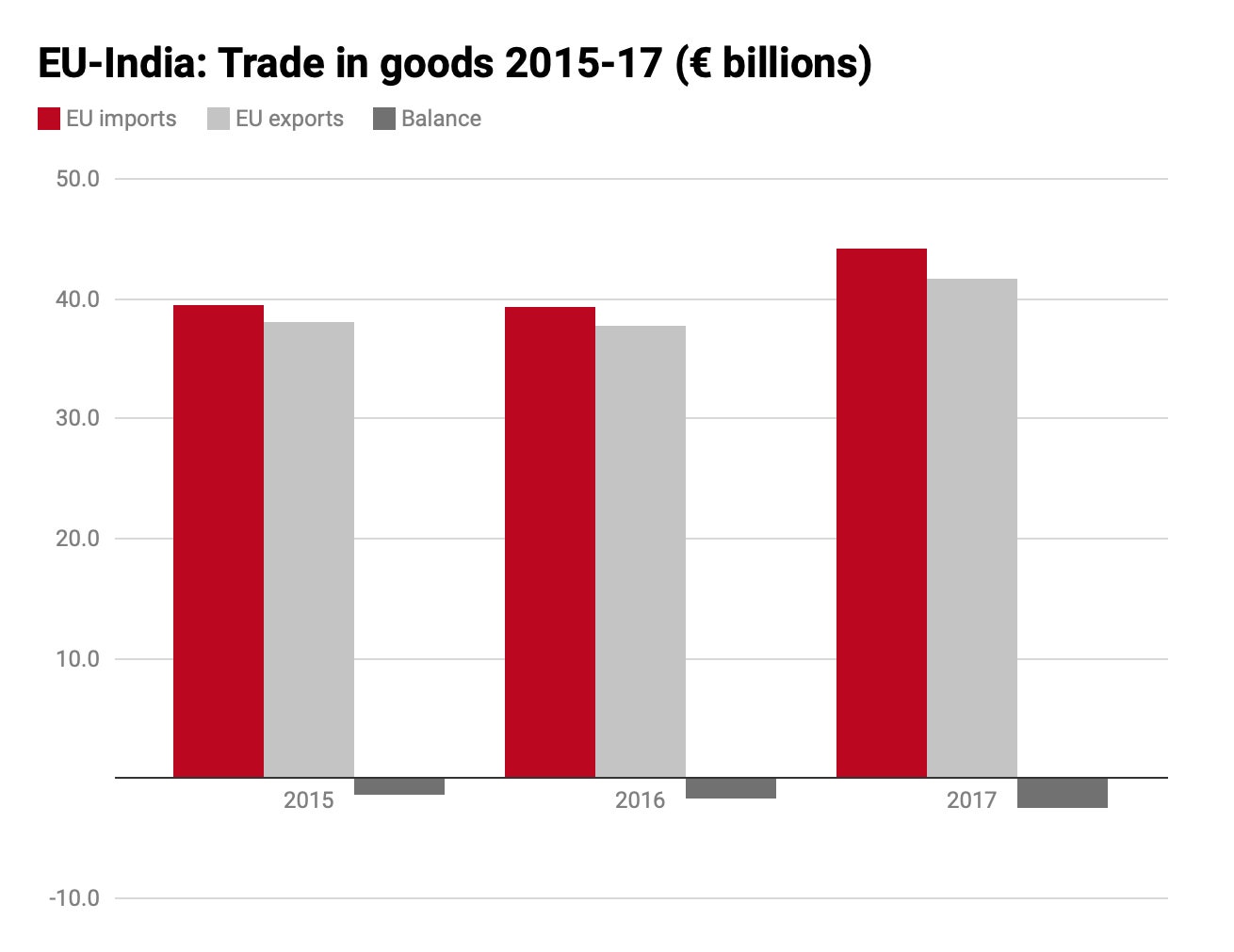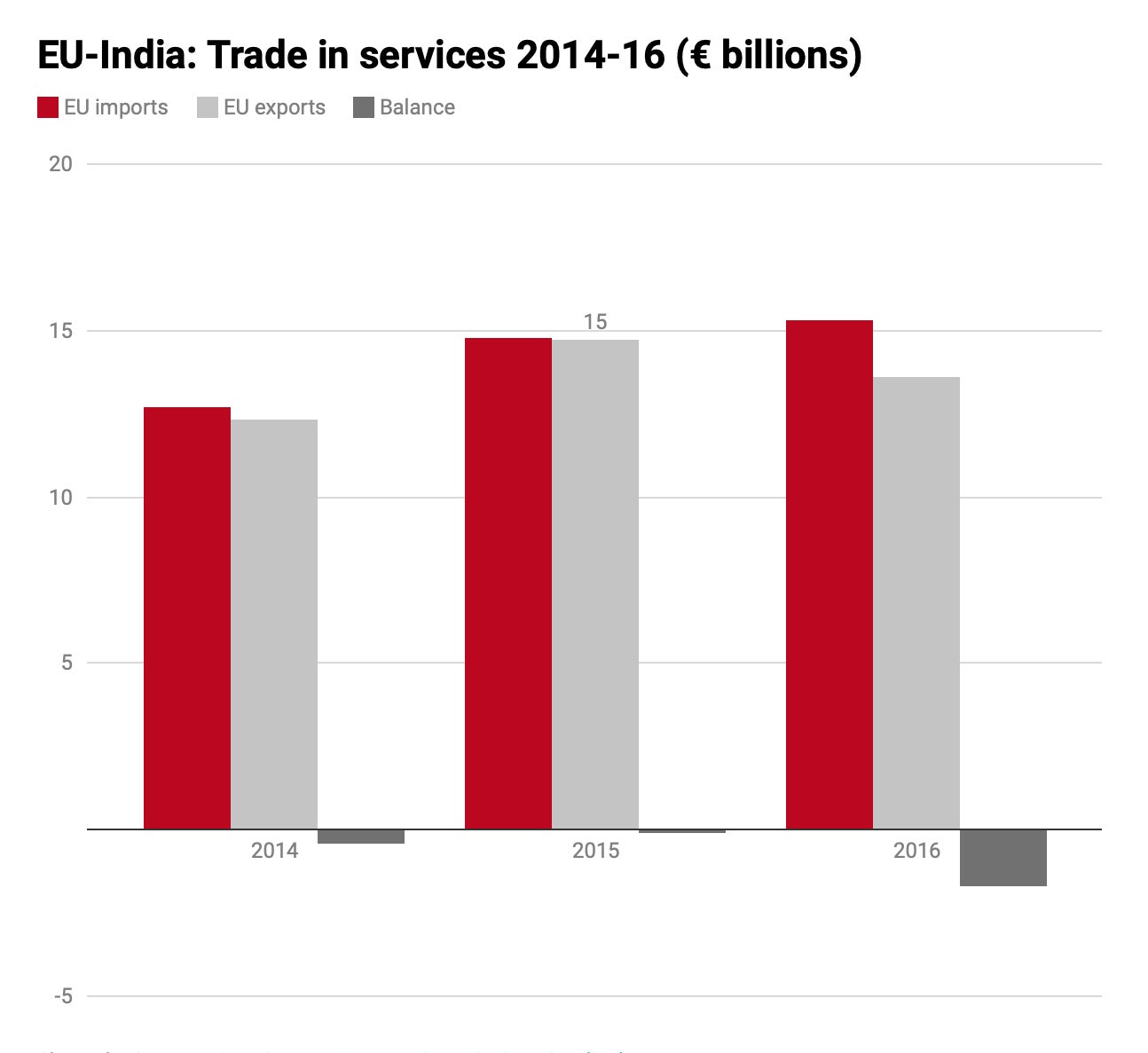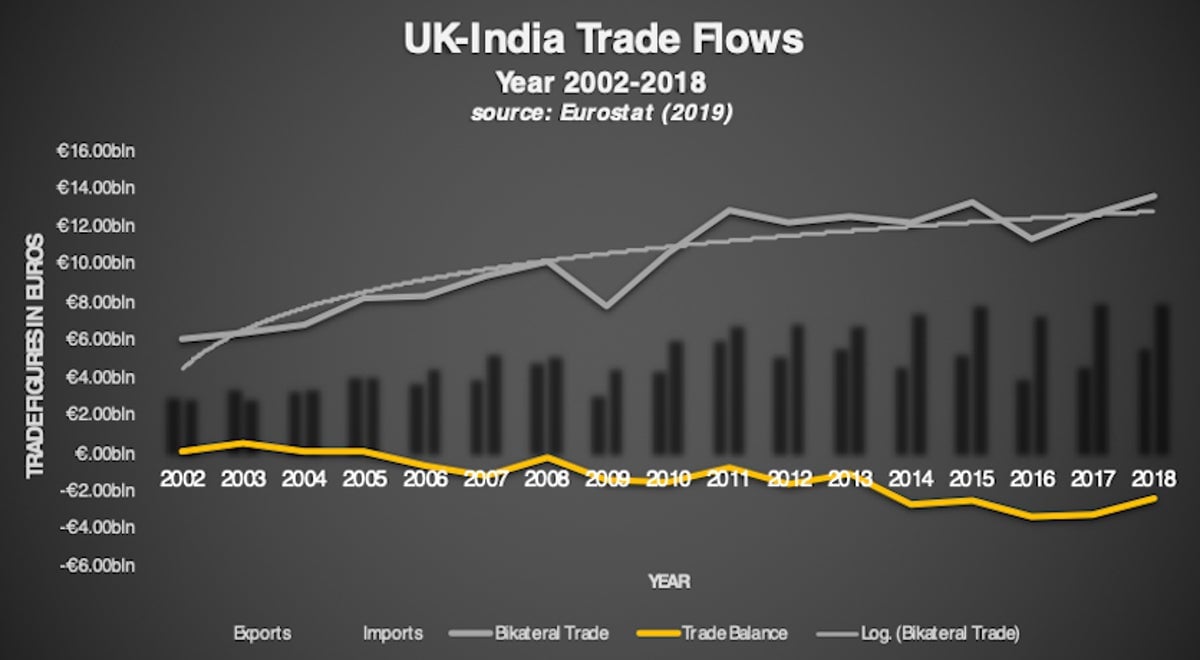How the messy Brexit could be an opportunity for India
The European Union and India have been negotiating a free trade agreement (FTA) since 2007. Despite growing trade between the EU and India, talks stalled in 2013 after 16 rounds, only resuming in 2018. There has been talk in Brussels that Brexit might help remove some of the hurdles to an agreement. But this is unlikely to be the case.


The European Union and India have been negotiating a free trade agreement (FTA) since 2007. Despite growing trade between the EU and India, talks stalled in 2013 after 16 rounds, only resuming in 2018. There has been talk in Brussels that Brexit might help remove some of the hurdles to an agreement. But this is unlikely to be the case.
If anything, the UK is better positioned to secure a trade deal with India than the EU, although this will not be straightforward. The UK’s desire to curb immigration is likely to lead to tough negotiations. But future UK-India FTA talks may well be an opportunity to negotiate a manageable set of strategic priorities.
The EU is India’s largest trading partner, accounting for around 13% of India’s total trade in goods in 2017. India contributes around 2.3% of total EU trade and is the EU’s ninth biggest trade partner. Trade in goods between the EU and India grew by three times over 2002-18, from €28 billion to €91 billion.

Services are also an important component of EU-India trade. Eurostat data shows that Indian services exports to the EU were €16.6 billion in 2018, while imports were €17.1 billion. The sector has also attracted foreign direct investment from the EU, including Germany, the Netherlands, France, Italy and Belgium, as well as the UK.

Sticking points
Talks between the EU and India broke down in 2013, after it became clear that reaching an agreement on the demands for tariff reductions and market access, as well as the inclusion of social, environmental and human rights clauses would be impossible. Discussions resumed in 2018, which led to the declaration of an EU-India strategic partnership. While this agreement helped to resume the talks, it mainly reaffirmed current ties rather than tackling any of the issues that caused the trade agreement discussions to stall initially.
From the EU’s perspective, the main sticking points were drug patents, tariffs for second-hand cars, agriculture, services, rules of origin and an unacceptable list of sensitive items. The EU is adamant about negotiating a stronger intellectual property regime and a sustainable development chapter with social and environmental clauses, which India is unwilling to include in the trade agreement.
Plus, the EU wants detailed provisions for investor-state dispute settlement (ISDS) after India cancelled 20 bilateral investment protection treaties with individual EU countries in 2016. The ISDS demand is not acceptable to India and current regulations require foreign investors to resolve their problems in Indian courts for a period of five years before pursuing a claim under international law.
India views the proposed trade deal as an opportunity to address issues it has with the way the two sides trade in services. In particular, India wants more visas to be granted to its skilled workers in the services industry. This has been a longstanding demand.
After Brexit, this demand is unlikely to fade. But, at a time when all EU member states are grappling with a “migration crisis” any loosening of visa rules is highly unlikely. India has also been demanding status as a “data-secure nation”, which will reduce compliance costs for Indian software providers. But, given EU concerns over regulatory norms and data-privacy standards it is unlikely that the EU will agree to this demand.
Opportunity for a UK trade deal?
The UK is among India’s main trading partners from the EU bloc. Trade totalled €13.6 billion in 2018, accounting for 17% of India’s overall trade with the EU. Moreover, trade between India and the UK increased at an average rate of 8.8% a year between 2002 and 2018.
Machinery and transport equipment constitute 40% of India’s exports, and accounts for nearly 20% of total UK’s trade with India. The UK’s exports of alcoholic beverages also registered a significant increase, from €14m to €162m from 2002-18.

The lack of progress in EU-India trade talks might just be an opportunity for the UK to launch its own negotiations for a trade deal with India. From an economic perspective, India is an attractive trade partner. It is projected to be the world’s fastest growing economy, with an annual GDP growth rate of around 6.5%. In the UK, GDP is predicted to grow by a mere 1.5% in 2019. India is also home to almost one-fifth of the world’s population. It could be a strategic partner for the UK in Asia, presenting an opportunity to increase Britain’s soft power in the region.
From India’s perspective, a trade deal with the UK could be an opportunity to increase pressure on other Asian countries, especially China, to liberalise their trade. This will also help India’s geopolitical considerations in the region given the history of tense diplomatic relations with Pakistan. And it could help strengthen India’s Commonwealth ties.
But other issues remain. The UK and India would still have to agree on reducing tariffs on their respective imports. Visa numbers and intellectual property would also be issues for the UK, as they were with the EU, and could yet prove contentious. So free trade talks between the UK and India could still be long and drawn out.
Recent political developments, however—including Brexit, eurozone uncertainty, sluggish global growth rates and trade tensions from the Trump administration’s pursuit of a protectionist agenda—all have serious implications for future trade talks. These could well nudge the partners to review their red lines and return to the negotiating table.
This article is republished from The Conversation under a Creative Commons license. Read the original article. We welcome your comments at [email protected].